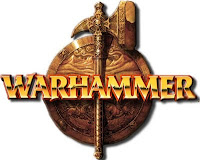<--------------------->
The Game of Kings Show Me 7s!
The defining factor here is that Chess is a solved game. It is a (more or less) perfectly tactical and determinate game in which the better player will almost always win. Craps (at the other end of this spectrum) is completely unsolvable and computers are no better at it than humans. Maybe I should be using a different game for my example here because I am getting the sneaking suspicion that I am soon going to receive a thorough education in the tactical intricacies of Craps, but I'm going to stick with it because it's still a good example (says I!).
Neither of these games is implicitly superior to the other. Maybe that sounds all new-age special butterfly-y, but I think that these games simply cater to different audiences. I prefer Chess (sorry Craps enthusiasts) and I think that most gamers would follow suit. I feel pretty safe saying that gamers want to have some element of control over their win or loss in a game. However, some amount of crapsiness (how do you like this word I've just made up? Try using it in conversation (I do... it's fun)) can add to the fun of a game.
If you look at popular miniatures, card, and board games, the Craps element of the game frequently outweighs the Chess. I like to think that most miniatures games (once models are on the table) are somewhere toward the middle on the Craps side of the spectrum. Some games like Warhammer are extremely Craps heavy, whereas WarMaHordes is shifted a bit toward the Chess side. The difference in predictability meaningfully affects who plays each game and why.

In the Grim Darkness of the Chess<>Craps spectrum, there is only war



No comments:
Post a Comment